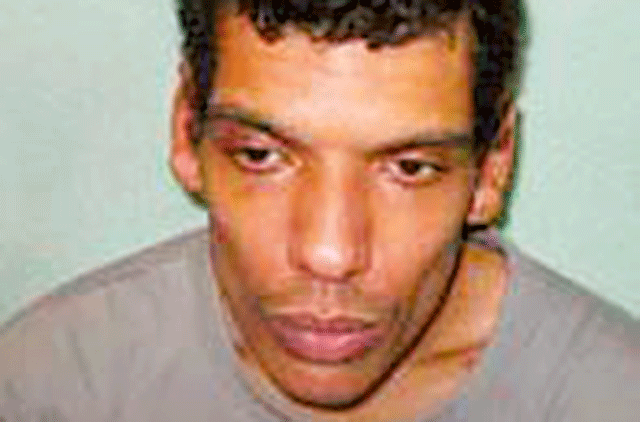
London: A man who left three Emirati sisters for dead in a horrific claw hammer attack at a London luxury hotel had an extra nine years added to his sentence on Thursday.
Philip Spence, 33, savagely bludgeoned his victims in front of their terrified children at their suite in central London’s Cumberland Hotel.
He was earlier given 18 years in prison in a verdict in November last year, but will now spend 27 years in jail.
Khulood Al Najjar, 36, and her sisters Ohoud, 34, and Fatima, 31, suffered fractured skulls and life-threatening injuries after the attack in the early hours of April 6, last year.
Spence was given a life sentence for the three counts of attempted murder and ordered to serve a minimum of 18 years before he was eligible for parole, after a trial at Southwark Crown Court.
But on Thursday, he stared blankly ahead as the Solicitor General, Robert Buckland QC MP, argued the sentence was “unduly lenient” and Spence deserved a whole-life term.
He said Spence should be treated like a murderer, because it was only due to advances in modern medicine that all three sisters had survived, and their debilitating injuries could be considered “equal or worse than” death.
Buckland said in this case “a whole-life order is merited, [even] in the absence of a conviction for murder”.
Spence still displays “little insight” and “does not accept murderous intent”, experts reported.
“He was known to carry a hammer and he was using a hammer as a defensive weapons as long ago as 2008,” Buckland said. “At some time during or after the attack he was sufficiently calculated to complete the burglary. He also had the presence of mind to dispose of the hammer.”
Buckland called the crime “a cold-blooded attempt to kill every adult present” and an act of “pre-meditated wickedness”.
He concluded: “The appropriate sentence in this case is a whole-life term”.
William Nash, Spence’s lawyer, said: “It is an extremely rare event for a whole-life sentence to be imposed for something that doesn’t result in an actual murder.”
Nash said he had ‘no doubt he [Spence] would have been entirely content if he had never had to use it [the hammer]’.
The solicitor also said Spence had not regularly carried around a hammer as weapon, as alleged.
The Lord Chief Justice, Lord Thomas, exclaimed, ‘It is not responsible advocacy to raise these sort of points’, asking why this had not been raised at the trial.
The judge, sitting with Justice Globe and Justice Knowles, refused to pass a whole-life tariff, instead increasing Spence’s minimum term to 27 years.
‘A very serious aggravating feature in this case was that this murderous attack was carried out in front of Khulood’s children,’ he said.
‘Having left the women for dead, the defendant collected a suitcase full of valuables.
‘All three sisters who were attacked suffered life-threatening injuries.
‘The effect on the children has inevitably been severe. They no longer trust anyone, fear to be alone and don’t want to leave home.’
Lord Thomas agreed that thanks to ‘modern medical science’, victims of violent attacks can have ‘miraculous recoveries’.
He continued, ‘This is a shocking case. However, it seems to us, looking at what this court has said on a number of occasions, and taking into account all the facts, that this is not a case where a whole-life tariff would be the right sentence.
‘However, we are firmly of the view and we have no hesitation whatsoever that the minimum term imposed by the judge was unduly lenient.
‘In our judgment, the minimum terms should therefore be one of 27 years and we therefore quash the original order and impose in its place a minimum term of 27 years, less time on remand.
‘It will be for the parole board with due care to consider whether this offender who is obviously highly dangerous…will be, if ever, released.’
Lifelong criminal Spence had been smoking crack for two days when he spotted a designer bags through a partially open door as he prowled the corridors on the seventh floor of the hotel.
He slipped into the suite and began putting iPads, phones and precious jewellery in a suitcase he found.
When Khulood woke up, Spence leant over her and yelled ‘Give me f*****g money!’ before raining down blows with the hammer he had concealed in his jacket.
Her terrified screams woke sister Fatima who, showing ‘remarkable courage’, desperately tried to stop the attack.
But Spence started to rain blows down on her head until she too lost consciousness. Khulood’s two daughters, aged just 11 and seven, were also in the room.
Spence brutally pounded Ohoud’s head with the hammer, destroying the left side of her skull and leaving her for dead.
Part of her brain was protruding from a hole in her forehead following the savage attack and she was left with just five percent brain function.
Spence had previously attacked his landlord with a hammer in a row about his rent and once launched a random attack on strangers in the street. He was first convicted in 1993 and has convictions for theft, drug offences, robbery and burglary.
Spence, of (34) Abbeyfields Close, Alperton, northwest London, admitted three counts of causing grievous bodily harm with intent and one count of aggravated burglary.
He denied three counts of attempted murder and one count of conspiracy to commit aggravated burglary but was convicted of those charges.












